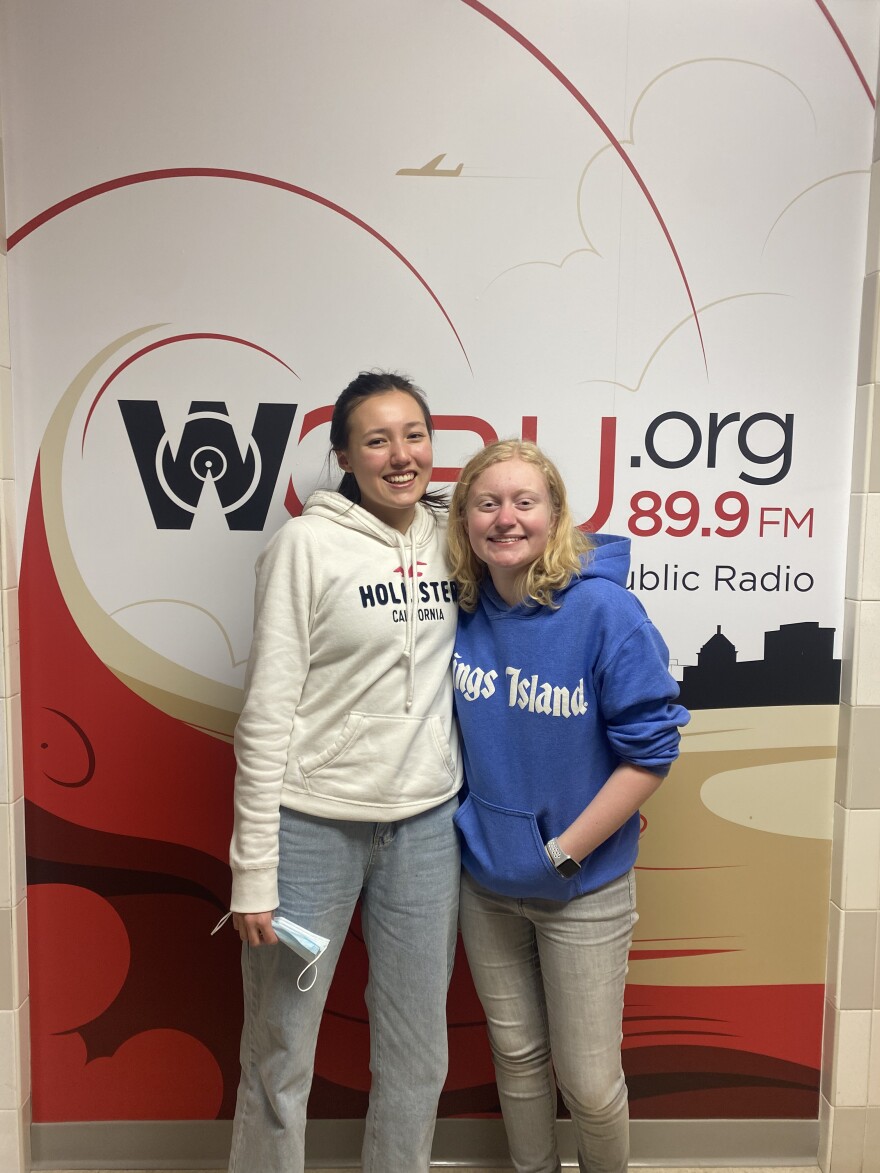Music has a long history of serving as a way to connect with people. Many times, it’s an extension of language, allowing us to communicate thoughts, feelings, and emotions just by listening.
Youth Music Illinois (YMI) in Peoria, formerly known as Central Illinois Youth Symphony, has been striving to foster these connections and educate today’s youth throughout their musical journey since 1965. What began as a mission to find the best musicians from the Peoria district 150 high school orchestras has now evolved into multiple programs that stretch far beyond Peoria. Now, students from several communities, including Bloomington and Galesburg, take lessons and play in the ensembles that make up YMI.
Executive Director Lidia Riley is ecstatic with how much the program has blossomed over the past 55 years ago.
“We have two full orchestras, two string orchestras, a jazz program that's doing quite well, a percussion program, and our Suzuki School of Music as well,” she said.

The Suzuki School of Music is a recent addition that opened in 2020 under the direction of Laura Otto. This program uses the Suzuki technique to teach children as young as 3 to play an instrument. Molly Wilson-Nogaj, a Suzuki instructor at the school, said there are a couple components that make this technique different from traditional music education.
“One is the parent is really involved in lessons, especially. You can think of a 4-year-old starting violin. There could be some assistance that would be needed from the parent … another unique part of the Suzuki method is that everything is learned by ear. The students listen to their recordings throughout the week many many times. When they go to play those pieces on the instrument it just flows out of them because they already know it in their inner ear,” Wilson-Nogaj said.
The Suzuki Method was founded by Japanese violinist Shinichi Suzuki over 50 years ago after making the connection between the principles of a child’s native language acquisition with music. The method is primarily intended for children ages 3-5, as they can't adequately read sheet music yet. Director Laura Otto had worked at a Suzuki school in the past, and wanted to see the method come to life in Peoria.
Lidia Riley said the Suzuki school was a critical component of YMI once the COVID-19 pandemic swept through the region.
“They were the ones who got to really operate I think, that was kind of our connection still to the community. Between March and May of 2020, we did decide to shut down and try virtual lessons,” said Riley.
While these virtual lessons were successful, YMI is now back to face-to-face instruction, as well as live, in-person concerts. A violin student of YMI, Sidney Draksler, thinks being in person is an important component to music education.

“Being able to play in an orchestra with other people, learn how to balance your sound with others…and especially now my high school doesn’t have an orchestra either so just that opportunity to play with others, getting used to that feeling, and meeting the people,” said Draksler.
After both her elementary and high school orchestra programs were cut, YMI provided Draksler with an education she couldn’t receive anywhere else in the community. Another violin student, Elsah Luan, echoed concerns about music programs across the nation being cut.
“Music is one of those things I feel gets the last bit of everything … music sometimes gets left behind. Just being able to have an organization where you can go to meet new people that are likeminded in their love for music is huge. The education that it provides is amazing. People don’t seem to see that music is educational for lots of things,” she said.
Lidia Riley says many studies have come out that show just how educational music can be beyond being a creative outlet.
“It’s team building, its language learning, its collaboration with other people, there are plenty of other educational benefits as well,” she explains.
And Molly Wilson-Nogaj sees the impact music has on these children firsthand as an instructor.
“There’s a lot of focus on technique and rhythms and notes and intonation and all that normal kind of music stuff that creates excellence, but then there's this other level above that that's just creating this beautiful sound, beautiful music. There’s something intangible and special about that that's not based on technicality necessarily or on assessment like it would maybe normally be in a school setting,” said Wilson-Nogaj.
It’s clear that regardless of whether a school has a music program or not, YMI continues to fulfill a need within central Illinois that speaks to how transcendent a musical experience can be not just for the individual, but for the communities that surround these music organizations.
“I believe that music has the power to transform communities…you can see music really transforming and building communities where there may not of been communities before. It’s just great to be able to bring people together with the one thing we all kind of understand and agree on,” said Riley.
Youth Music Illinois will be having concerts on May 6-7 at Metamora high school. Find more information about YMI, all its programs, and the Suzuki School of Music on their website.


